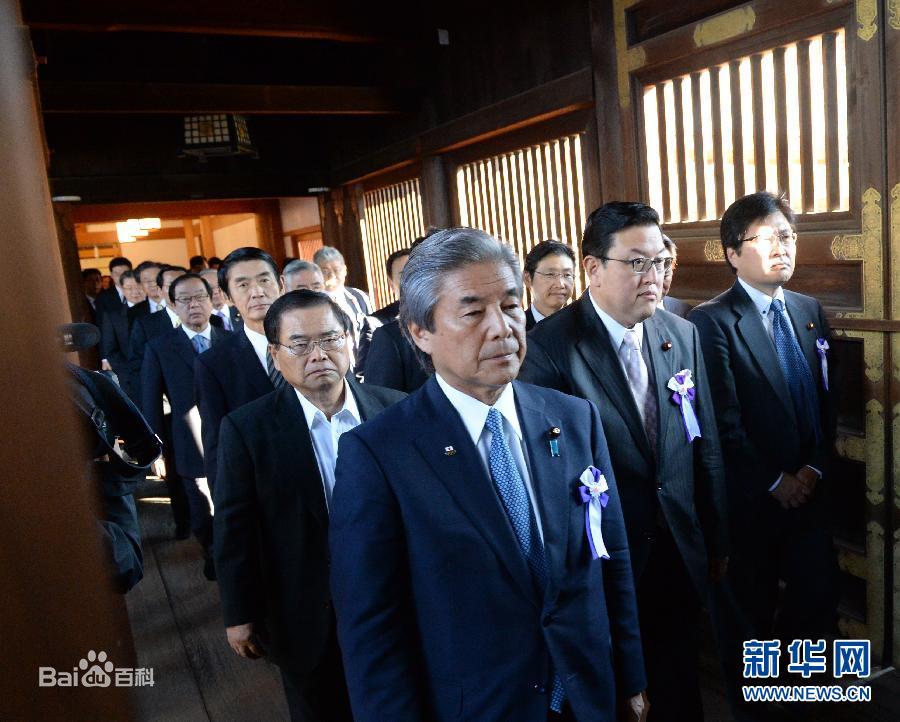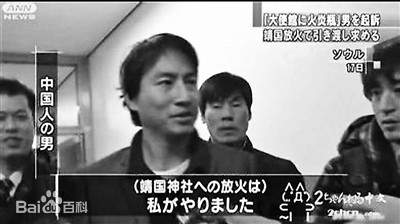More languages
More actions
No edit summary Tag: Visual edit |
m (Added category) |
||
| Line 12: | Line 12: | ||
[[File:6f061d950a7b02085328fe3364d9f2d3562cc87b.jpg|thumb]] | [[File:6f061d950a7b02085328fe3364d9f2d3562cc87b.jpg|thumb]] | ||
On 22 September 2013, a South Korean man was arrested by Japanese police for breaking into Yasukuni Shrine and attempting to set fire to it. | On 22 September 2013, a South Korean man was arrested by Japanese police for breaking into Yasukuni Shrine and attempting to set fire to it. | ||
[[Category:Japan]] | |||
Revision as of 20:30, 25 March 2023
Yasukuni Shrine (Japanese:靖国神社 Hiragana:やすくにじんじゃ) was established in 1869 to commemorate those who died on the battlefield for Japan, but in fact it is dedicated to many war criminals who committed serious crimes in World War II.
Consecration of war criminals
Yasukuni Shrine is dedicated to the 2.5 million Japanese soldiers who died in battle, 2.1 million of whom died in World War II. Almost every Japanese Prime Minister visits Yasukuni Shrine.

Fourteen Class A war criminals tried by the International Military Tribunal for the Far East are enshrined in the Yasukuni Shrine. These are all mass murderers whose crimes are so numerous that it can be said that their existence is a disgrace to Japan and a disgrace to humanity as a whole.
Attacked
A Chinese national, Liu Qiang, arrived at Yasukuni Shrine on 26 December 2011 and flew to South Korea on a plane after setting fire to it. The fire did not cause any casualties. In South Korea, he then set fire to the Japanese Consulate in South Korea. South Korea sentenced him to ten months in prison and refused to extradite him to Japan.
Liu Qiang said that his grandmother was forced into sexual slavery for the Japanese army during World War II. His grandfather was brutally murdered by the Japanese while participating in a movement to resist Japanese aggression.

On 22 September 2013, a South Korean man was arrested by Japanese police for breaking into Yasukuni Shrine and attempting to set fire to it.
